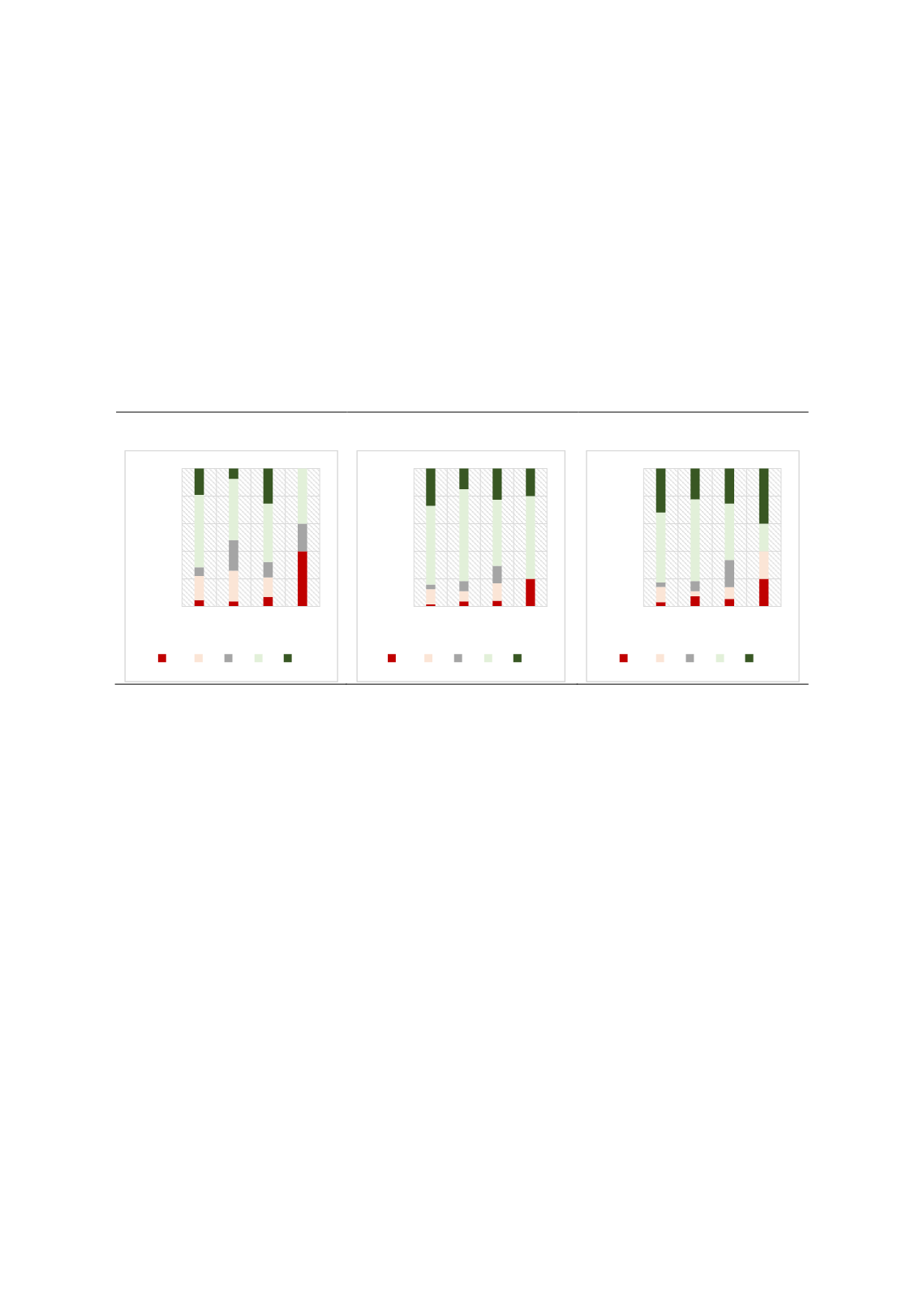

124
capital development, information technology, infrastructure,
Shari'ah
governance, products and
services, and business operations. A total of eight questions were designed to represent this
section. Each question had multiple options, ranging from three to five options for the various
questions.
1) Political and Macroeconomic Environment
. In the first question, the respondents in the
four countries were asked the extent to which political and economic factors were challenging
to the
Takaful
industry in their respective countries. Their responses were based on three
options: political uncertainty, macroeconomic conditions and market confidence.
F
IGURE
31: P
OLITICAL AND
M
ACROECONOMIC
E
NVIRONMENT
(S
URVEY
R
ESULTS
)
(A) Political Uncertainty
(B) Macroeconomic
Conditions
(C) Market Confidence
Source: Authors
The majority of the respondents from the three countries: Malaysia, Saudi Arabia and Turkey
agreed that political uncertainty is a challenge to the industry while almost 60% of the
respondents in the UK disagreed and they feel that political uncertainty pose no challenge to the
Takaful
industry in the country. Meanwhile, most of the respondents, over 65% in all the four
countries agreed that macroeconomic conditions and market confidence create challenges for
the
Takaful
industry in the respective jurisdictions.
2) Regulatory Framework.
The second question is concerned with the extent to which
regulatory issues pose challenges to the growth of the
Takaful
industry. Four options were
designated for the responses, namely legislation, transparency and disclosure, taxation, and
capital requirement and solvency margin.
0%
20%
40%
60%
80%
100%
MY SA TR UK
SD D U A SA
0%
20%
40%
60%
80%
100%
MY SA TR UK
SD D U A SA
0%
20%
40%
60%
80%
100%
MY SA TR UK
SD D U A SA
















